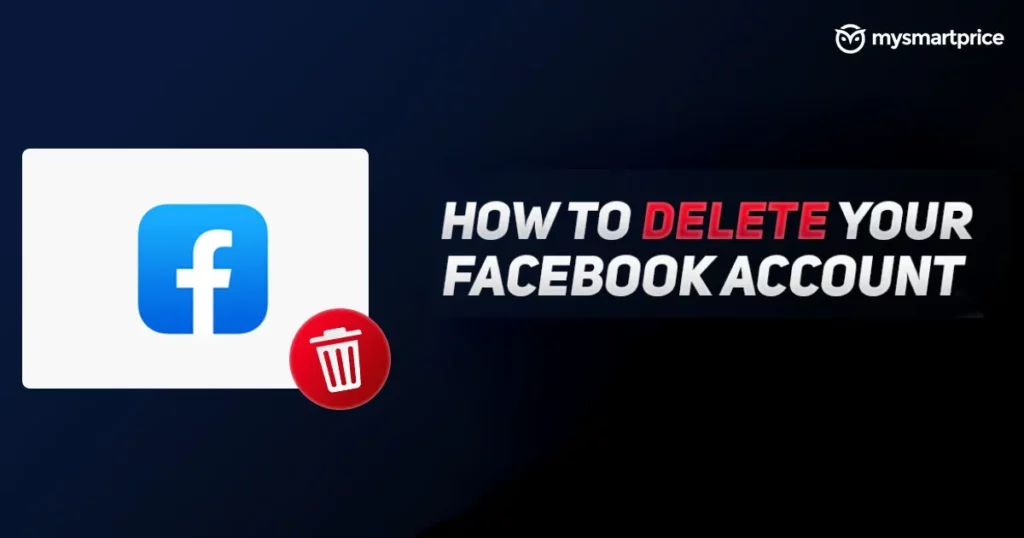
In today’s digital era, social media platforms have become an integral part of our lives, connecting us with friends and family from across the globe. However, amid growing concerns over privacy breaches and online security threats, many individuals are contemplating taking a step back from this virtual world. If you find yourself wanting to detach from the ever-present Facebook and regain control over your personal information, you may be wondering: How do I delete my Facebook account? In this article, we will explore the steps to permanently deactivate your profile while also considering alternative options for those seeking a temporary break. So let’s dive in and discover how to bid farewell to Mark Zuckerberg’s creation once and for all.
The Importance of Deleting Your Facebook Account
Deleting your Facebook account may seem like a drastic move, but it holds immense significance in today’s digital age. We live in a time where privacy has become a luxury, and social media platforms like Facebook are designed to exploit that vulnerability. By deleting your account, you are reclaiming control over your personal data and protecting yourself from targeted advertising, data breaches, and surveillance.
Furthermore, leaving Facebook can have positive impacts on your mental well-being. Studies have shown that excessive use of social media platforms can lead to feelings of anxiety, depression, and loneliness. By disconnecting from the constant pressure of presenting a curated online image and comparing ourselves to others’ highlight reels, we can focus on building meaningful relationships and nurturing our own self-worth.Ultimately, deleting your Facebook account allows you to liberate yourself from the grips of addiction to endless scrolling and mindless consumption of irrelevant content. It opens up space for more productive activities such as reading books or pursuing hobbies that bring genuine joy and fulfillment. Take the plunge; free yourself from the clutches of an algorithm-driven world that constantly seeks to commodify your attention.
Step 1: Backup Your Data and Information
In today’s digital age, our lives are becoming increasingly reliant on technology. From important documents and cherished photos to personal records and financial information, we store a vast amount of data and information on our devices. However, what would happen if this crucial data suddenly disappeared? It’s a nightmare scenario that many individuals have unfortunately experienced firsthand. That is why it is essential to regularly backup your data and information.
While deleting a Facebook account may not directly affect the files on your device, it still serves as an excellent reminder to take precautions when it comes to safeguarding your valuable data. Whether you’re switching social media platforms or simply decluttering your online presence, taking the time to back up your files should be a top priority. In doing so, you provide yourself with peace of mind knowing that even if something goes wrong in the future – whether it’s due to accidental deletion or an unexpected technological glitch – you can easily retrieve all the important information you thought was lost forever.
Step 2: Deactivate Your Account Temporarily
If you’re feeling overwhelmed by the constant updates and notifications from Facebook, it might be time to take a break. One option is to temporarily deactivate your account. Temporary deactivation allows you to take a step back from the social media platform without permanently deleting all your data and connections.
During this period of deactivation, you will appear invisible to others on Facebook. Your friends won’t be able to view your profile or interact with your posts. However, it’s worth noting that some information may still be visible, such as messages sent to others or comments you’ve made on public pages. This temporary break can provide much-needed rejuvenation and help clear your mind from the constant flood of information. It allows you to focus on other aspects of life without the distractions that come with social media presence. Whether it’s for a few days or several weeks, taking this break could help improve productivity, reduce stress levels, and offer a fresh perspective when you decide to return to Facebook.
Step 3: Permanently Delete Your Facebook Account
Deleting your Facebook account may seem like a daunting task, but it can be a liberating and refreshing experience. In an age where privacy concerns are rampant, permanently removing yourself from the social media giant can give you peace of mind knowing that your personal information is no longer being collected and used for targeted advertising or other purposes.
Beyond the privacy implications, deleting your Facebook account can also have positive impacts on your mental health. Constant exposure to others’ curated lives, opinions, and judgement can take a toll on our self-esteem and overall well-being. By removing this constant source of comparison and validation-seeking from our lives, we free up mental space to focus on things that truly matter – our relationships with loved ones, pursuing our passions without distractions, and simply enjoying life in the present moment. Moreover, deleting your Facebook account can also be seen as an act of rebellion against the notion that we need to constantly stay connected online. It allows us to break free from the addictive cycle of scrolling through feeds aimlessly and replace it with meaningful face-to-face interactions. By taking this step towards disconnecting from the virtual world, we are reclaiming our autonomy over how we direct our attention and time.
Step 4: Review Privacy Settings and Connected Apps
Before deleting your Facebook account, it is crucial to review and adjust your privacy settings. This step ensures that any personal information you have shared on the platform remains protected. Start by accessing the privacy settings through the drop-down menu in the top-right corner of your Facebook homepage. Take a few minutes to explore each section and customize them according to your preferences. You can control who sees your future posts, who can send you friend requests, and even limit who can search for you using your email address or phone number.
In addition to adjusting privacy settings, it is essential to scrutinize the apps and websites connected to your Facebook account. Many of us tend to connect various apps with our social media profiles without realizing how much access we grant them. These apps have varying levels of permissions, which may include accessing personal data such as photos, contacts, or even conducting posts on behalf of you. Therefore, go through the list of connected apps in your Facebook settings and remove anything unnecessary or suspicious.
Conclusion: The Benefits of Removing Your Facebook Account
In conclusion, removing your Facebook account can offer a multitude of benefits that go beyond simply reclaiming your time and privacy. One of the most significant advantages is the mental and emotional well-being that comes with detaching from the constant comparison and validation cycle. Without Facebook, you are freed from the pressure to present a curated version of yourself to an online audience, allowing you to nurture genuine relationships in your offline life.
Furthermore, deleting your Facebook account can also have a positive impact on society as a whole. By removing yourself from this social media giant, you disrupt their data collection practices and contribute to reducing the power imbalance between tech giants and individuals. This act of resistance sends a powerful message not only to Facebook but also to other companies that place profits over user privacy. Taking this stance can encourage more ethical practices within the technology industry as a whole.
Additionally, removing your Facebook account can be seen as an act of self-care and empowerment. It allows you to take back control over how you spend your time and energy, freeing up mental space for more meaningful activities or pursuing hobbies that truly bring you joy. Instead of scrolling mindlessly through news feeds filled with advertisements and fake news, you open doors for personal growth, genuine connections with others, and improved overall well-being.







